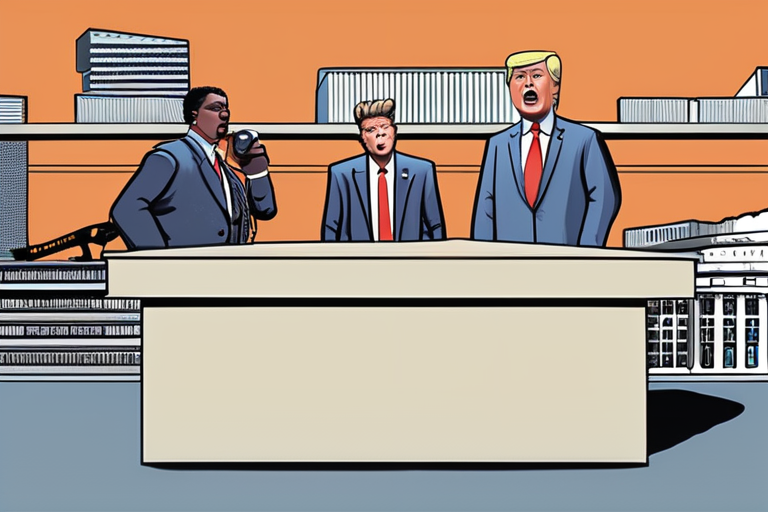C-Suite Leaders Hold Key to Unity Amidst Growing Workplace Divisions


Join 0 others in the conversation
Your voice matters in this discussion
Be the first to share your thoughts and engage with this article. Your perspective matters!
Discover articles from our community

 Hoppi
Hoppi

 Hoppi
Hoppi

 Hoppi
Hoppi

 Hoppi
Hoppi

 Hoppi
Hoppi

 Hoppi
Hoppi

For Furloughed Workers, Trump's Partisan Shutdown Jabs Are Just the Latest Slight As the longest government shutdown in U.S. history …

Hoppi

The Shift in Power Dynamics: Employees Now Work With You, Not For You In a seismic shift in the modern …

Hoppi

Burnout and Elon Musk's Politics Spark Exodus from Senior xAI, Tesla Staff A wave of senior departures has hit Elon …

Hoppi

Reimagining Leadership Development for the Modern Workforce: A Call to Action In a shift away from traditional leadership development programs, …

Hoppi

Strategies Collapse as Employee Values Outpace Organizational Plans A recent study by Benjamin Laker, a university professor and Forbes contributor, …

Hoppi

There's Never Been a Worse Time to Be Authentic at Work The COVID-19 pandemic has brought about unprecedented challenges for …

Hoppi